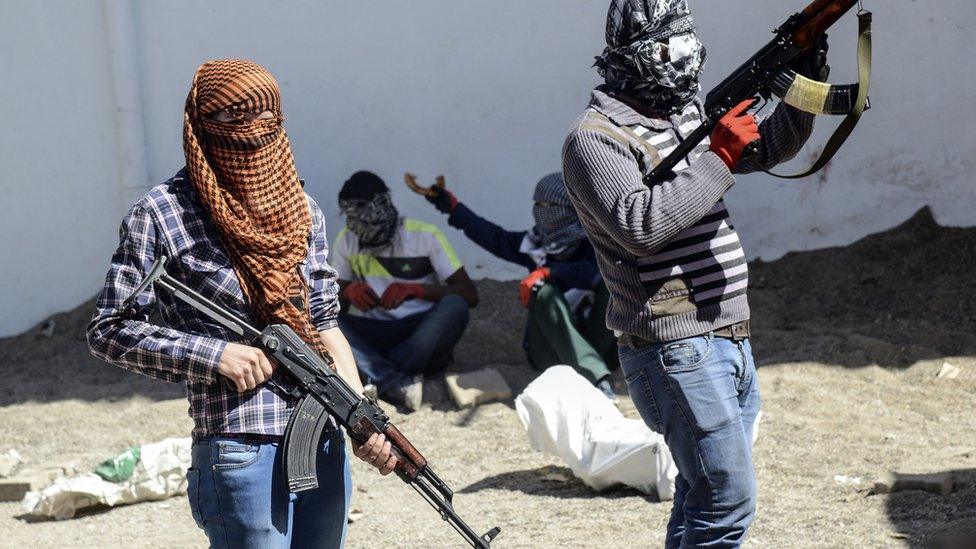Kurdish PKK rebels 'begin leaving Turkey' after truce
- Published
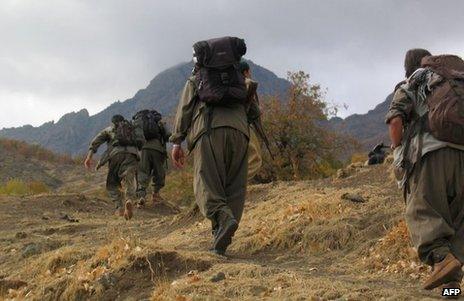
Photos have been released of PKK fighters crossing the mountains on foot
Kurdish rebel fighters have begun leaving south-eastern Turkey for their safe havens in Iraq under a ceasefire, Kurdish sources say.
"We know that they have started moving," Selahattin Demirtas, a pro-Kurdish politician involved in the peace process, told AFP news agency.
The Kurdistan Workers' Party (PKK) announced last month a phased withdrawal to start early in May.
More than 40,000 people have died in their 30-year fight against Turkey.
There was no immediate official confirmation of the move from Turkey but an unnamed security source told Reuters news agency: "We have observed movement among [PKK] group members, but have not been able to establish whether this is regrouping or preparation for a withdrawal."
The PKK is believed to have up to 2,000 fighters inside Turkey and their full withdrawal may take up to four months.
BBC journalist: This is the first stage of a long process
They are expected to cross the border on foot, heading for their bases in the Qandil Mountains of Iraq.
Abdullah Ocalan, the veteran PKK leader in prison in Turkey, ordered the withdrawal in March as part of peace negotiations with Ankara.
Withdrawal nerves
Gultan Kisinak, who co-chairs the Peace and Democracy Party (BDP) along with Mr Demirtas, told the Associated Press news agency that a first group of fighters had started to move toward the border with northern Iraq.
A PKK spokesman, Bakhtiyar Dogan, told the Kurdish newspaper Hawlati that between 200 and 500 fighters would withdraw on Wednesday.
They would, he said, leave from the Semdinli and Sirnak areas of Turkey "on three fronts".
According to AFP, PKK fighters complained on the eve of the withdrawal that the Turkish state had increased its forces in the border area and was carrying out surveillance flights.
Such actions, they said, were "delaying the peace process" and paving the way for "provocations and clashes".
The Turkish army did not confirm any extra measures but said their "fight against any terrorism" continued.
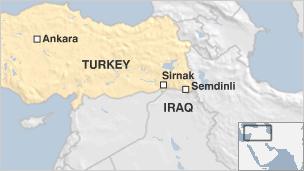
Turkish Deputy Prime Minister Bulent Arinc was quoted as saying by AP: "We are following the issue. It's the results that are important for us. We feel that we are close to getting results."
The PKK's acting leader, Murat Karayilan, warned in April that the fighters would strike back and the withdrawal would halt "immediately" if they were attacked.
"We have no doubt about the state but fear provocation from dark forces," Mr Demirtas said.
During a 1999 withdrawal, the Turkish military attacked the rebels, killing some 500.
Prime Minister Recep Tayyip Erdogan has repeatedly pledged the army will not attack any PKK fighters who withdrew.
On Tuesday, he said that "laying down weapons" should be the group's top priority in order for the peace process to succeed.
- Published25 April 2013
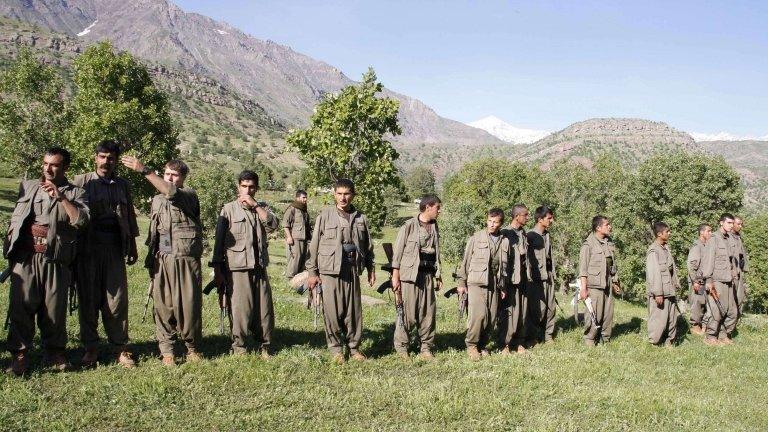
- Published8 May 2013
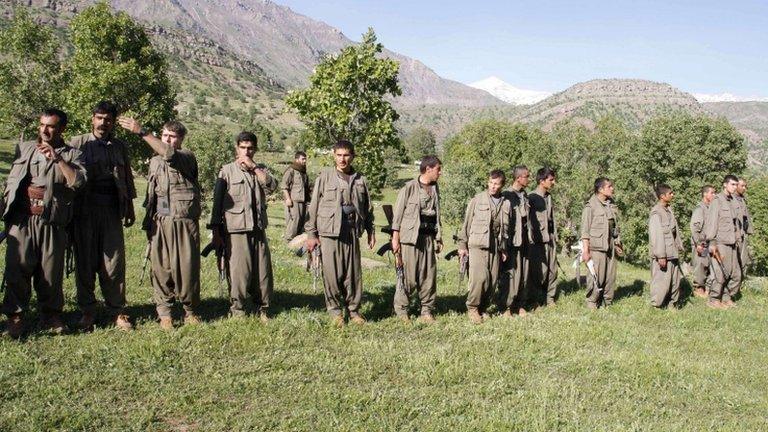
- Published4 November 2016
